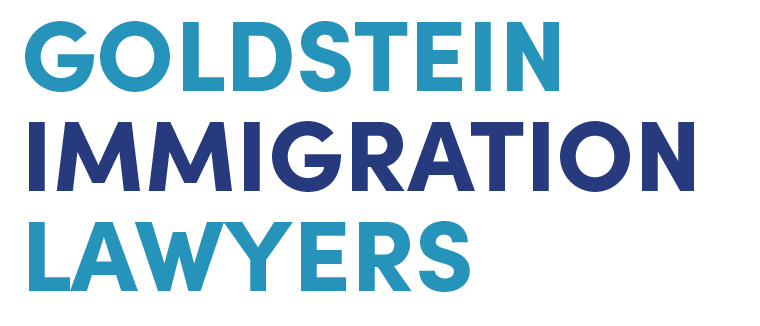Feeling the butterflies fluttering in your stomach as your immigration interview approaches? Succeeding in your visa interview can be a daunting task, but you're not alone.
Josh recently posted a TikTok of a recent immigration interview that didn’t go well. Unfortunately, setbacks like these are part of the journey for many. Yet, they also hold valuable lessons and insights that can pave the way for your visa success.
So, if you're feeling the weight of anticipation, fear not! Think of us as your visa appointment coach during your immigration interview preparation, and complete your last-minute interview checklist to ace your upcoming immigration interview!
@joshisimmigration Learn from my client's immigration experience: Don't let a simple mistake derail your interview success! 🚫💼 Stay focused, prepared, and confident to ace your immigration interview. Let's turn setbacks into stepping stones together! 💪 #immigrationlawyer #Immigration #marriagegreencard
Why the Visa Interview is So Important
Before we talk about how to get ready and succeed in your visa interview, let's understand why it's so important. Consular officers aim to ensure that you are eligible for the visa and genuinely intend to use it for its intended purpose.
During the interview, they'll ask about your background, travel plans, and other important details.
Their objective is to verify that you are a reliable applicant who meets the visa category requirements and does not raise any security concerns.
It's really important to come across as prepared and trustworthy during the interview to ensure you succeed in your visa interview.
5 Top Tips: Help You Succeed in Your Visa Interview
Besides dressing professionally, it's crucial to take into account these vital tips to enhance your success in your visa interview. Please note that the advice given below is especially helpful for those applying for nonimmigrant student visas.
Because of the high number of applications received by the United States in 2023, we've focused on these tips for success in your student visa interview.
1. Demonstrate Strong Ties to Your Native Country
Student visas are only given to applicants who can show they do not plan to stay in the United States permanently. It’s the best nonimmigrant visa interview advice anyone can give you.
To succeed in your visa interview as an International student, you need to demonstrate your intention to return to your home country. Any information you can provide showing your ties to your home country and your intention to return is very helpful.
Relevant evidence may include strong family ties, future job prospects, investments, or community connections. No single document can definitively answer this question. Instead, you need a clear, well-organized presentation tailored to your circumstances.
2. Sharpen Your English Language Skills
The visa interview will be conducted in English. It's important to work on your English language skills for visa interviews. If you're worried about your fluency, it's a good idea to practice speaking English before your interview.
Keep in mind your interview isn't an English language exam. Improving your English skills can also increase your chances of succeeding in your visa interview.
3. Know the Program and Understand Your Career Path
This advice is especially crucial if your goal is to achieve student visa interview success. Consular officers’ main goal is to prevent the misuse of the visa application process. You must be prepared to demonstrate to the interviewer that you understand your chosen program well.
You also need to show you have a solid plan for how it aligns with your future career goals in your home country. Not giving a clear answer about your program of study might make the interviewer worried. It could potentially cause issues for you and may result in not succeeding in your visa interview.

4. Focus on Your Education
Our best F-1 visa interview tips and J-1 visa interview guidance are to prioritize educational goals to succeed in your visa interview. These visas are meant for individuals who want to improve their career opportunities in their home country by attending an American educational program.
If you convey that your main intention is to find employment in the United States, your visa interview may not go smoothly. During your visa interview, it's essential to consistently highlight your educational goals.
You must show how you believe that an American education will directly help you progress in your home country. This aspect cannot be emphasized strongly enough.
5. Give Clear, Concise Answers: Master Responses
In most cases, interviews are brief yet thorough. You can help improve your chances of success by giving clear and concise answers to all the questions. Focus on addressing questions directly and avoid providing unnecessary information.
Let’s have a look at the visa interview Q&A guide below to help you succeed in your visa interview.
1. Answering Questions
Stick to the facts when you answer questions. Avoid too much detail or unnecessary information. Keep your answers short and to the point. Keep answers directly related to the question to increase your chances of succeeding in your visa interview.
Always remember that the consular office is not your friend. Not even close. Whatever you do, don't start chatting them up like you're old pals catching up over coffee. Keep it strictly professional at all times to ensure you succeed in your visa interview!
These examples show how to create effective responses during an immigration interview, focusing on clarity, relevance, and preparedness.
Provide concise and relevant answers:
Question: "Can you explain your work history?"
Good Answer: "I worked as a software engineer at XYZ Company for five years."
Avoid unnecessary details:
Question: "Where did you meet your spouse?"
Good Answer: "We met while studying at ABC University."
Stick to the topic at hand:
Question: "Have you traveled to any other countries?"
Good Answer: "Yes, I have visited Canada for a business conference."
2. Utilize "Yes, No, I Don't Know"
Using a straightforward response is helpful when you're unsure about the answer, especially for achieving success in your visa interview.
Acknowledge when unsure:
Question: "Do you have documentation for your previous employment?"
Good Answer: "I don't know, but I can provide it if necessary."
3. Be Prepared to Provide Evidence
If you have any papers that show why you're applying, like letters inviting you, bank statements, or school records, it's good to bring them. They can help prove why you're asking for the visa.
Organize relevant documents beforehand:
Question: "Can you provide proof of your residency?"
Good Response: "Certainly, here is my residency card."
Ensure documents are up-to-date:
Question: "Do you have a valid passport?"
Good Answer: "Yes, here is my passport, which is valid until 2026."

Last-Minute Preparation and Strategy Tips
As with everything in life, preparation and strategy are key to reaching your goals. Below are general visa interview strategies and tips to help you succeed in your visa interview.
1. Preparation is Key
Besides acting professionally, getting ready properly is really important for a successful immigration interview. Look up common questions, collect the right documents, and practice your answers to feel confident when you go for the interview.
Research Common Interview Questions
Example: "What is your reason for immigrating to this country?"
Good preparation means researching common reasons for immigration and adapting your response to your unique circumstances.
Gather Necessary Documents
It's very important to make sure you have all the right documents ready. You don't want to be scrambling at the last minute because you're missing something. Not having the correct documents could cause big delays or even not make you succeed in your visa interview.
It's much better to plan ahead and be ready. Focus on getting all your documents together as soon as you can.
Example: Ensure you have your passport, visa, birth certificate, marriage certificate, etc.
Good Preparation: Ensure all required documents are in order and can be accessed easily before the interview.
Here are important document preparation for visa interview tips:
- A valid passport that won't expire while you're in the United States.
- Proof that you've successfully filled out and submitted your DS-160 form for your visa application.
- A recent photo of yourself, just in case there were any problems uploading it online.
- Your complete school records, like report cards or transcripts (for student visas).
- Any papers that show your connections to your home country and that you plan to go back there after you finish studying (in cases that apply to student visas).
- Proof that you have enough money to pay for your schooling.
- Confirmation of your appointment for your interview.
- Top tip - it's not advisable to use a flip file.
2. Know Your Rights
Understanding your rights during an immigration interview is crucial. Familiarize yourself with the process, know what questions can and cannot be asked, and don't hesitate to seek legal advice if you feel your rights are being violated.
Familiarize Yourself with Interview Protocols
Example: Understanding what questions can and cannot be asked.
It's important to be well-informed: Research interview guidelines and get to know your rights as an interviewee.
Seek Legal Advice If Necessary
Example: If you feel your rights are being violated during the interview.
Take the right step: Seek guidance from an immigration lawyer for help with any legal issues that may come up during the interview.
Get in Touch to Succeed!
Just remember, we all stumble sometimes, but that doesn't mean we can't get back up and keep going. Take lessons from the experiences of others and allow them to guide your own journey. You'll soon find yourself back on track with some guidance and determination.
Don't hesitate to reach out! We specialize in cases where applicants have been placed in administrative processing after their visa interviews. Speak to us about available legal solutions, and let's turn those dreams into reality. Complete our online questionnaire, and let's make your dreams happen!
